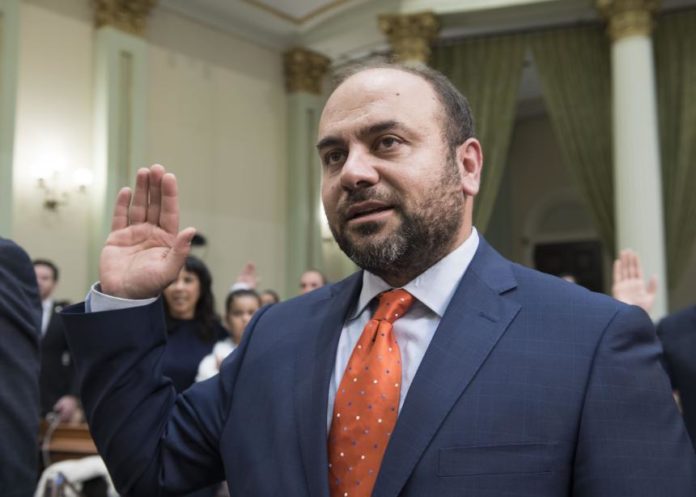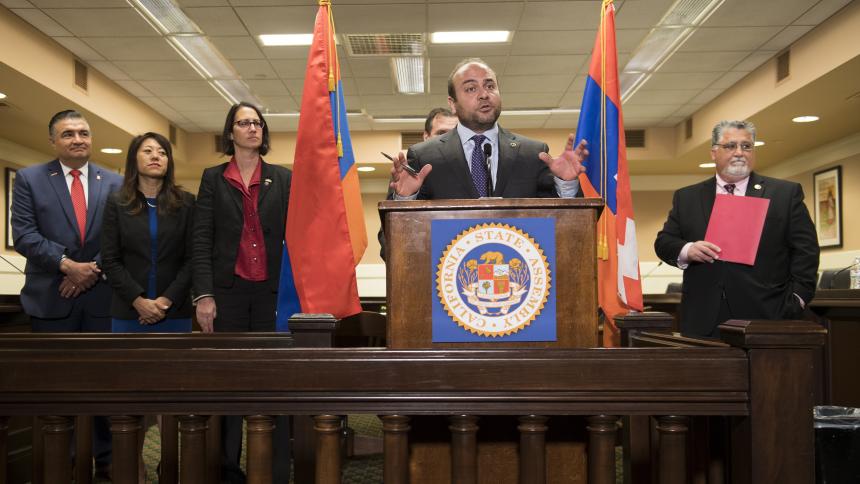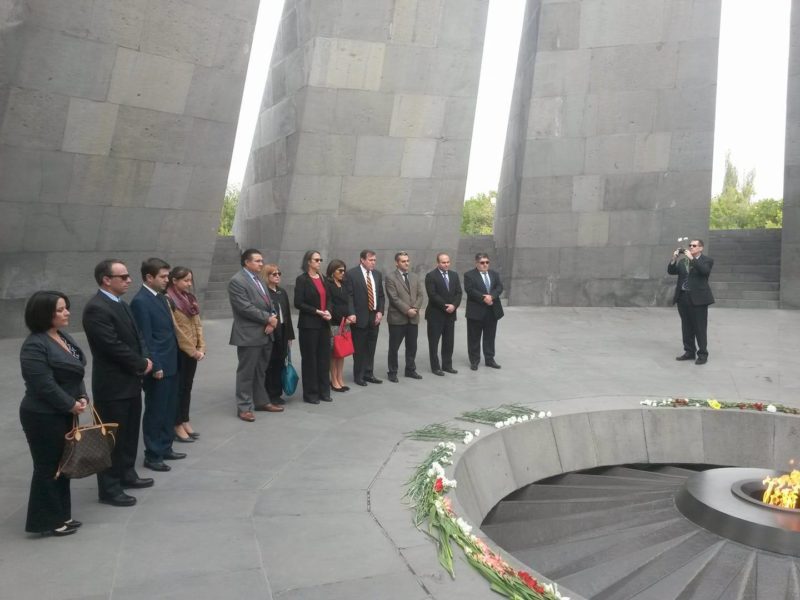SACRAMENTO — State Assemblymember Adrin Nazarian (D-Sherman Oaks) is unique for a couple of reasons: at present he is the only official elected in California on the state level of Armenian background, as well as the only elected Iranian-born official possibly in any legislative office in the United States at the state level or higher. However, he serves a district in the San Fernando Valley which is primarily non-Armenian demographically. In a recent interview, he said his three broad areas of focus as a politician are equity, infrastructure and the aging community.
The 47-year-old Nazarian said that while he is very pragmatic as a legislator and an elected official whose role is to represent his constituents, “at the same time, you want to look forward, and kind of push and pull your constituency towards a certain direction.” Part of what motivates him is his interests and background, and this is where his Armenian family story comes into play.
Influence of Family
Like many Armenians, his family has seen much tragedy and in the last 110 years, three generations moved four times. His paternal grandparents were natives of Shushi, Karabakh (Artsakh), who, when their hometown was burned in 1920, were forced to move to Baku. Nazarian’s father was born there in 1928, but he said that his grandfather did not want to accept communism or live under Stalinism, and therefore moved to Iran to set up a business. Before he could bring his wife and two sons, neighbors informed the Soviet NKVD, or secret service, which exiled his wife to Siberia, leaving the sons without parents for some five years. She made it back alive and somehow escaped to Iran at night, Nazarian said, to join her husband.
Nazarian’s maternal grandmother was from Volgograd in Russia and because of the Bolshevik revolution, she lost her father and her family got split apart. Three siblings moved to Armenia while she and her younger brother came to Iran.
Iran, too, had its revolution in 1979 and then the Iran-Iraq war, leading to Nazarian’s family once again being torn asunder, this time over three different continents, for some seven years, until reuniting in the United States. Nazarian and his mother had to traverse several countries to come to the United States in 1981.











